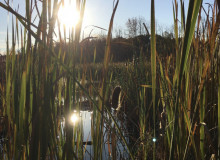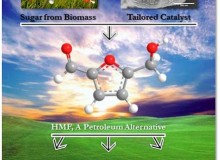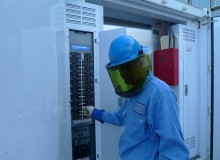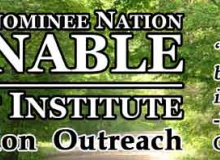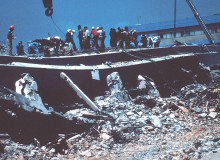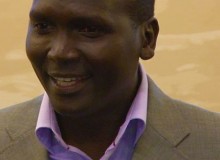Search
SUNY ESF
Wednesday, December 04, 2019
This photo essay investigates the causes and effects of wetland destruction in the United States, as well as solutions.
Tags: wetlands, water purity, Biodiversity, wetland destruction, storyfest2020
National Science Foundation
Monday, June 27, 2011
Renewable energy sources that power residences and small businesses are usually integrated into small networks known as microgrids.
Tags: Colorado, nsf, microgrid, power grid
National Science Foundation
Tuesday, January 31, 2012
Researchers have developed a way to make an efficient catalyst that transforms biomass-derived sugars into a compound used in fuels, plastics and pharmaceuticals.
National Science Foundation
Monday, August 08, 2011
Recently, multiple NSF-funded researchers have documented genetic changes resulting from climate change. These studies suggest that extreme variation in temperature and rainfall are causing genetic shifts in organisms with short life spans.
Tags: california, washington, plants, warming, temperature, arthur, weis, UC-Irvine, rainfall, genes
Planet Forward
Wednesday, September 20, 2017
According to the College of Menominee Nation, the Sustainable Development Institute (SDI) was organized in 1993 by community leaders representing a broad spectrum of institutional interests including governance, commerce, education, and

(Stephen Leonardi/Unsplash License)
The Greenzine
Monday, January 09, 2023
A historical account of the conflicts surrounding animal agriculture, endangered species, and Indigenous rights at the Point Reyes National Seashore in Northern California.
Associate Director, Planet Forward
Tuesday, December 01, 2015
April 21-22 at George Washington University
Associate Director, Planet Forward
Thursday, September 17, 2015
In September of 1985, a massive earthquake struck Mexico City. The city's former aquifer foundation played a part in the extent of the destruction. What does this mean for drought-ridden California?
Tags: earthquake, natural disaster, early warning
George Washington University
Friday, January 31, 2014
Paul Tergat went from running 6 miles to school and back as a kid just to get one meal to being an Olympic athlete and marathon world record holder with the help of a school meal program.

